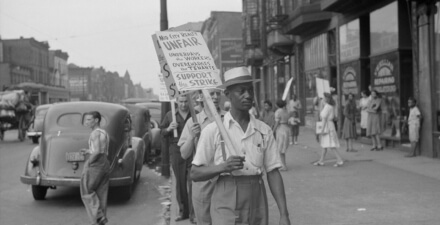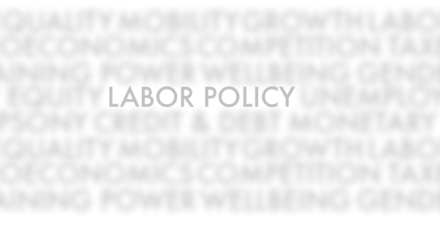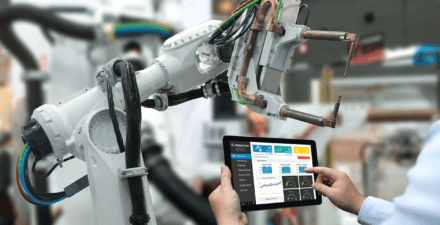Increasing evidence demonstrates the ways in which bargaining power shapes economic outcomes. One’s economic success is not merely defined by individual characteristics such as education. Equitable Growth’s work on unions and collective action in the United States examines the ways in which institutions intersect with economic trends and individual characteristics to ensure that workers can share in the gains of the economic growth to which they contribute.
Featured work
Will labor’s surging popularity result in new union members in the United States?
August 29, 2024
August 29, 2024
Unions in the United States improve worker safety and lower health inequality
December 13, 2022
December 13, 2022
Factsheet: How strong unions can restore workers’ bargaining power
May 1, 2020
May 1, 2020
Unions and the enforcement of labor rights: How organized labor protects U.S. workers against unfair and illegal employment practices
April 29, 2022
April 29, 2022
Aligning U.S. labor law with worker preferences for labor representation
February 18, 2020
February 18, 2020
Explore Content in Bargaining Power390
Building a competitive, talent-driven future for U.S. manufacturing requires investing in our nation’s high-tech advantage
February 20, 2019
February 20, 2019
New research shows the franchise business model harms workers and franchisees, with the problem rooted in current antitrust law
December 13, 2018
December 13, 2018
Control without responsibility: The legal creation of franchising 1960-1980
December 13, 2018
December 13, 2018
How job-matching technologies can build a fairer and more efficient U.S. labor market
November 15, 2018
November 15, 2018
The intersectional wage gaps faced by Latina women in the United States
November 1, 2018
November 1, 2018
In conversation with Herbert Hovenkamp and Ioana Marinescu
October 11, 2018
October 11, 2018
Explore the Equitable Growth network of experts around the country and get answers to today's most pressing questions!













